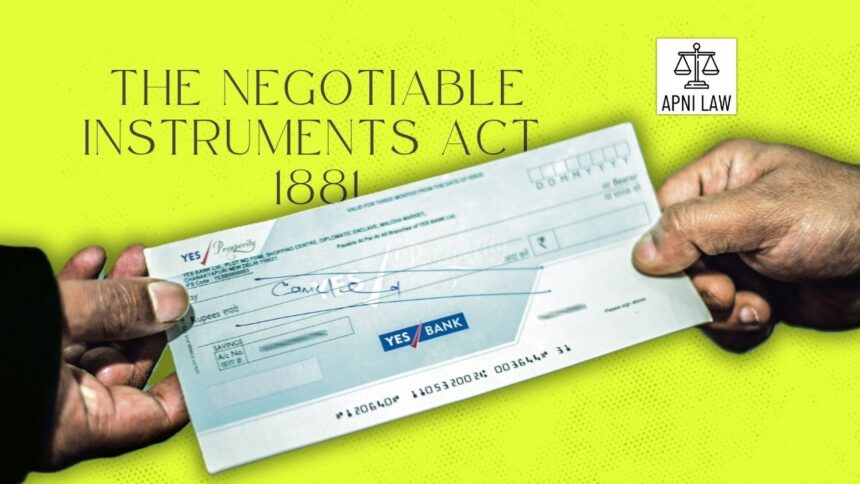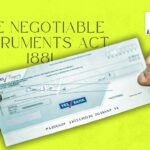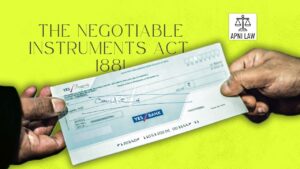Introduction
In the realm of financial transactions, cheques are widely used to discharge liabilities. However, dishonour of cheques due to insufficient funds or other reasons has become a serious issue. To protect the interests of genuine cheque holders and ensure the credibility of negotiable instruments, the Negotiable Instruments Act, 1881 provides strong legal presumptions in their favour.
One such important provision is the presumption in favour of the holder of the cheque. This simplifies the legal process for recovering dues.
What Is Presumption in Favour of Cheque Holder?
Under Section 139 of Negotiable Instruments Act, the law presumes that a cheque received by a holder was issued for the discharge of a lawful debt or liability, either wholly or partly. This presumption stands unless the contrary is proved by the drawer.
In simple terms, once a person presents a cheque in court, it is assumed that the cheque was given in good faith to settle a debt. The burden of proof then shifts to the drawer (issuer of the cheque) to prove otherwise.
What Happens If The Cheque Bounces (Section 138 of the NI Act)?
Section 138 of the Negotiable Instruments Act, 1881 deals with the dishonour of cheques. It lays down that if a cheque is returned by the bank due to insufficient funds or because it exceeds the amount arranged with the bank, the drawer is deemed to have committed an offence, punishable with imprisonment up to two years, or fine, or both.
To attract Section 138, the following conditions must be met:
- The cheque must have been issued for discharge of debt or liability.
- It must be presented within 3 months from the date of issue.
- The payee must issue a written demand notice within 30 days of receiving information of dishonour.
- The drawer must fail to make the payment within 15 days of receiving the notice.
The presumption in favour of the holder plays a crucial role in proceedings under Section 138, as it supports the holder’s claim that the cheque was issued against a legally enforceable debt.
Illustration
Mr. X lends ₹1,00,000 to Mr. Y. To repay the debt, Mr. Y issues a cheque to Mr. X. However, when Mr. X deposits the cheque, it is dishonoured due to insufficient funds.
Mr. X initiates legal action under Section 138 of the NI Act. The court presumes that Mr. Y issued the cheque for repayment of the debt. It is now up to Mr. Y to prove that there was no such debt or that the cheque was not issued for repayment.
If Mr. Y fails to disprove the presumption, the court may convict him under Section 138, strengthening Mr. X’s legal position.
Conclusion
The presumption in favour of the cheque holder under the Negotiable Instruments Act ensures efficient redressal in cheque dishonour cases. Combined with the provisions of Section 138, this presumption forms a robust legal framework to enforce payment obligations and protect honest payees. Understanding this mechanism is vital for anyone involved in commercial or personal transactions using cheques.










